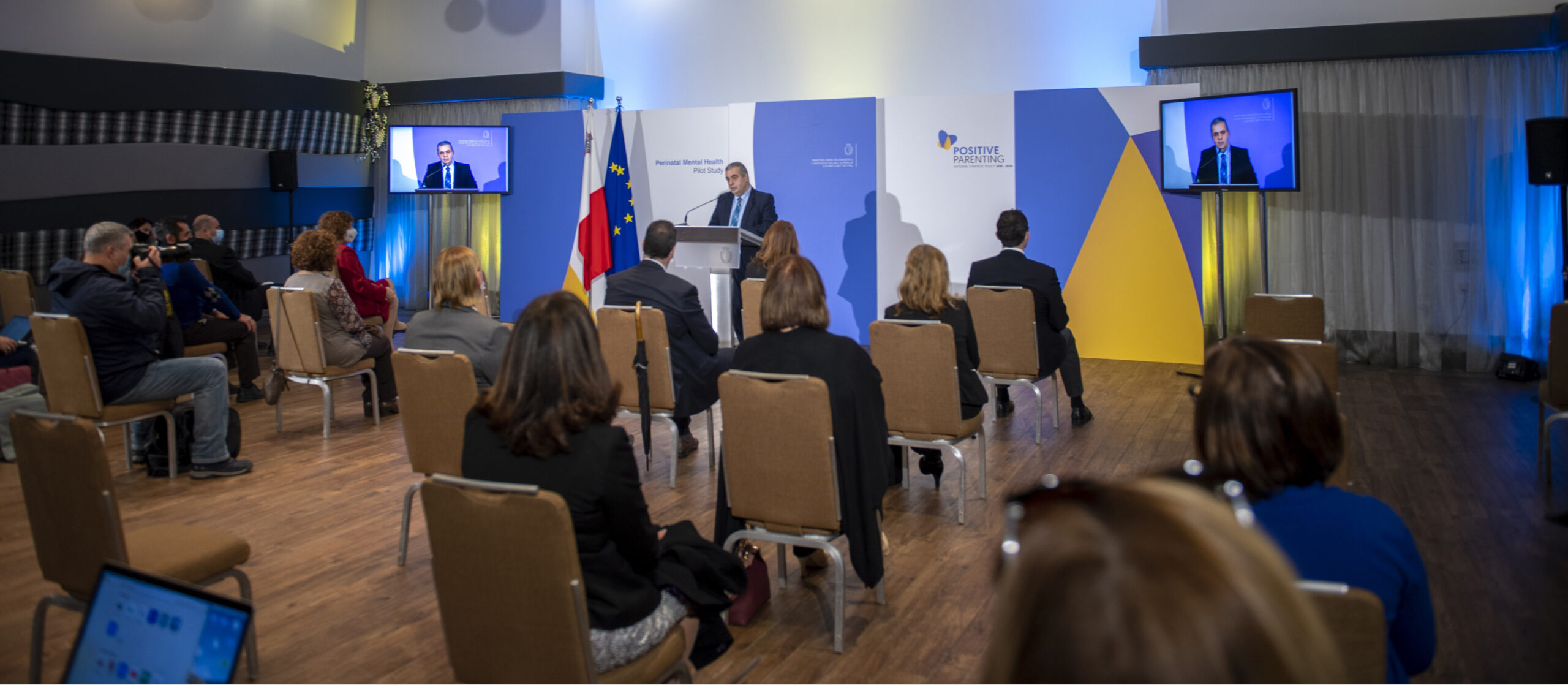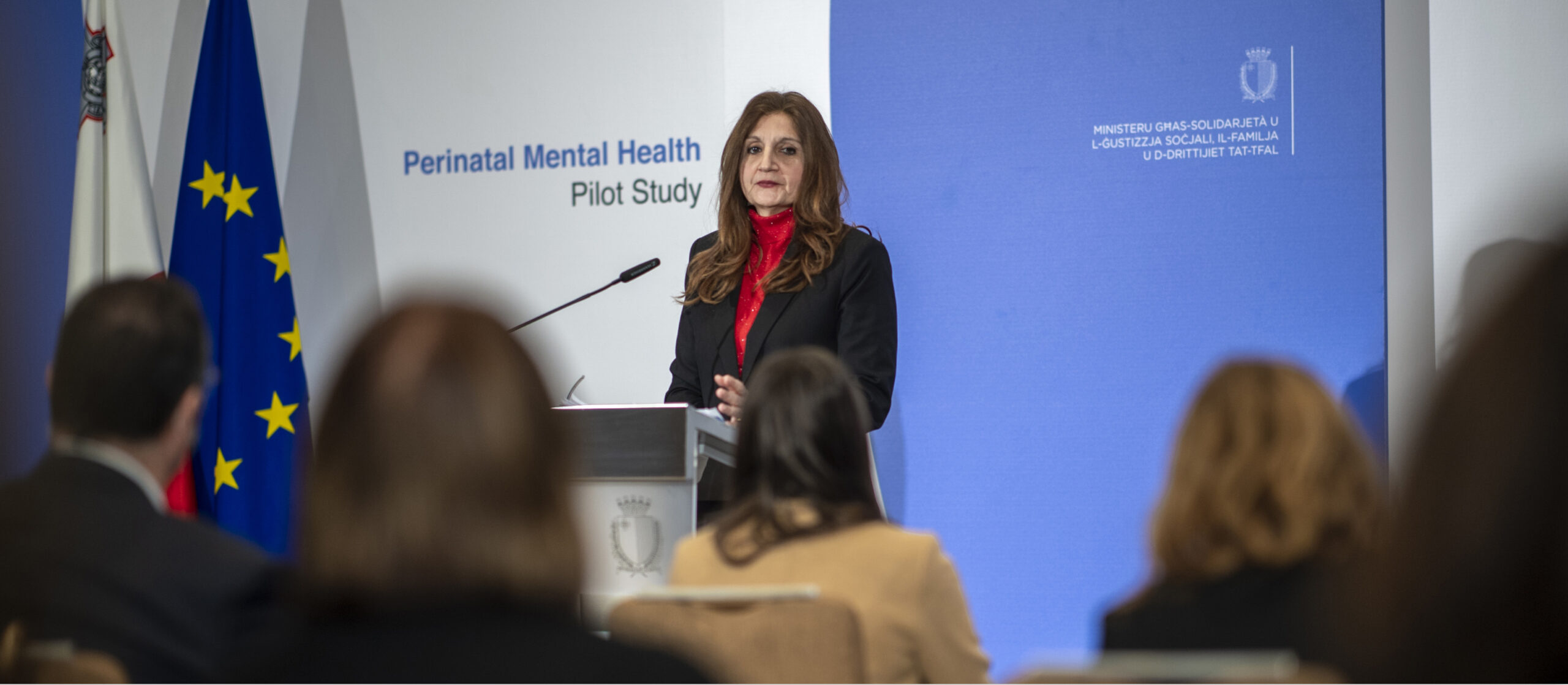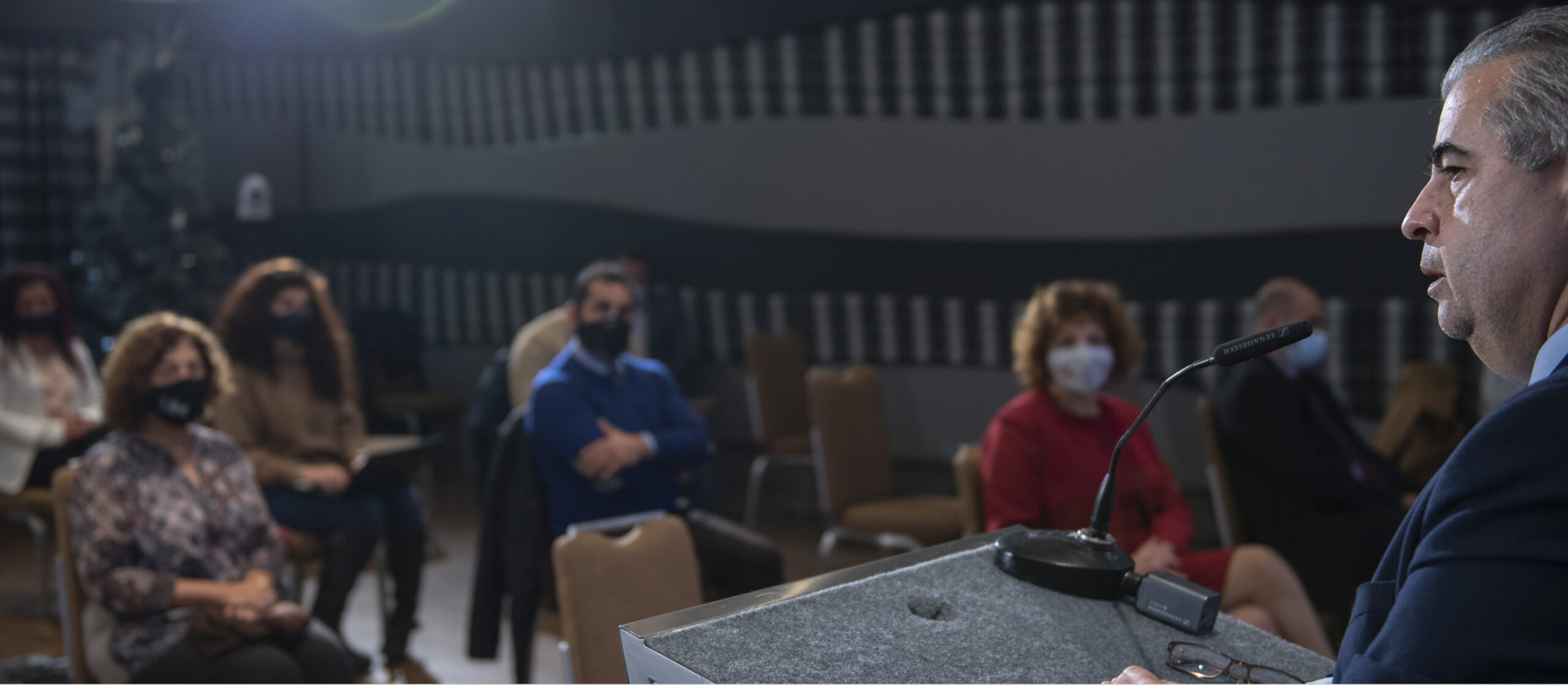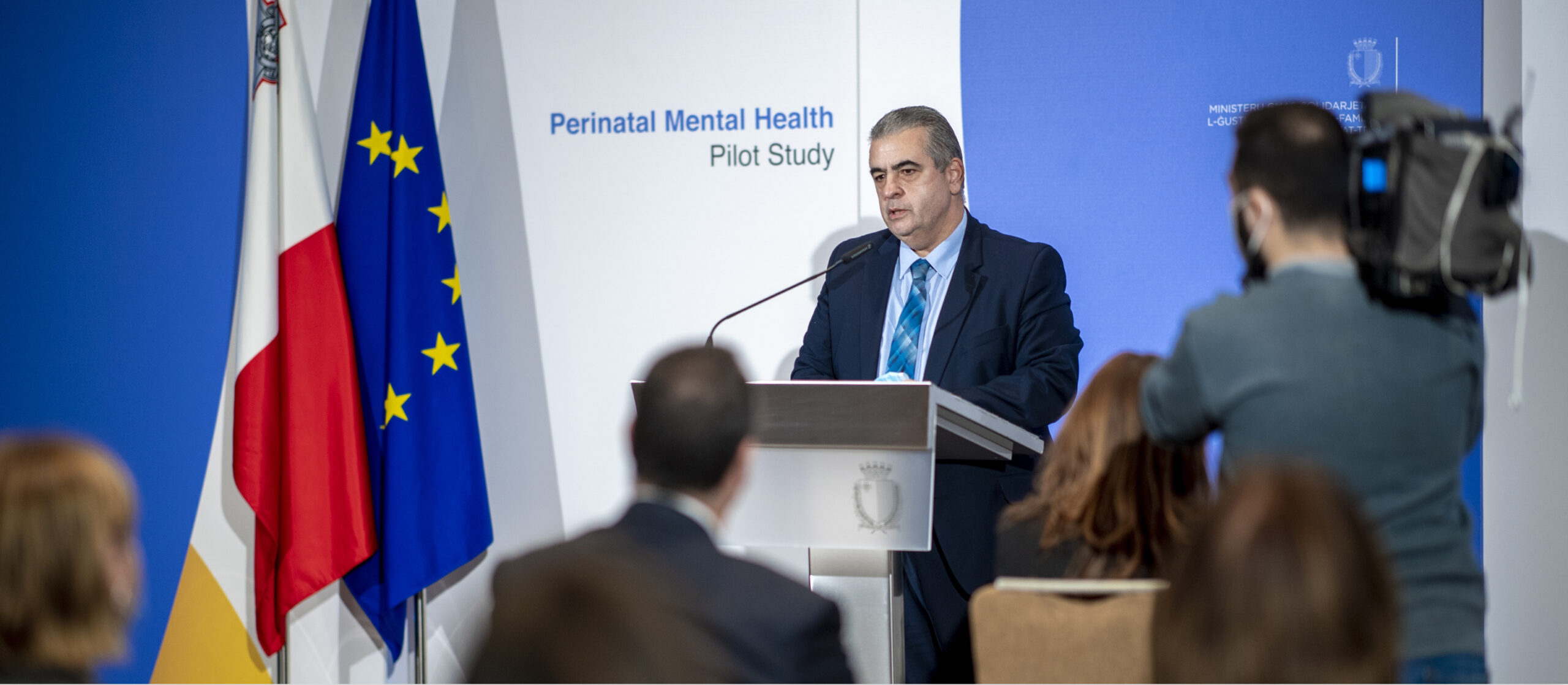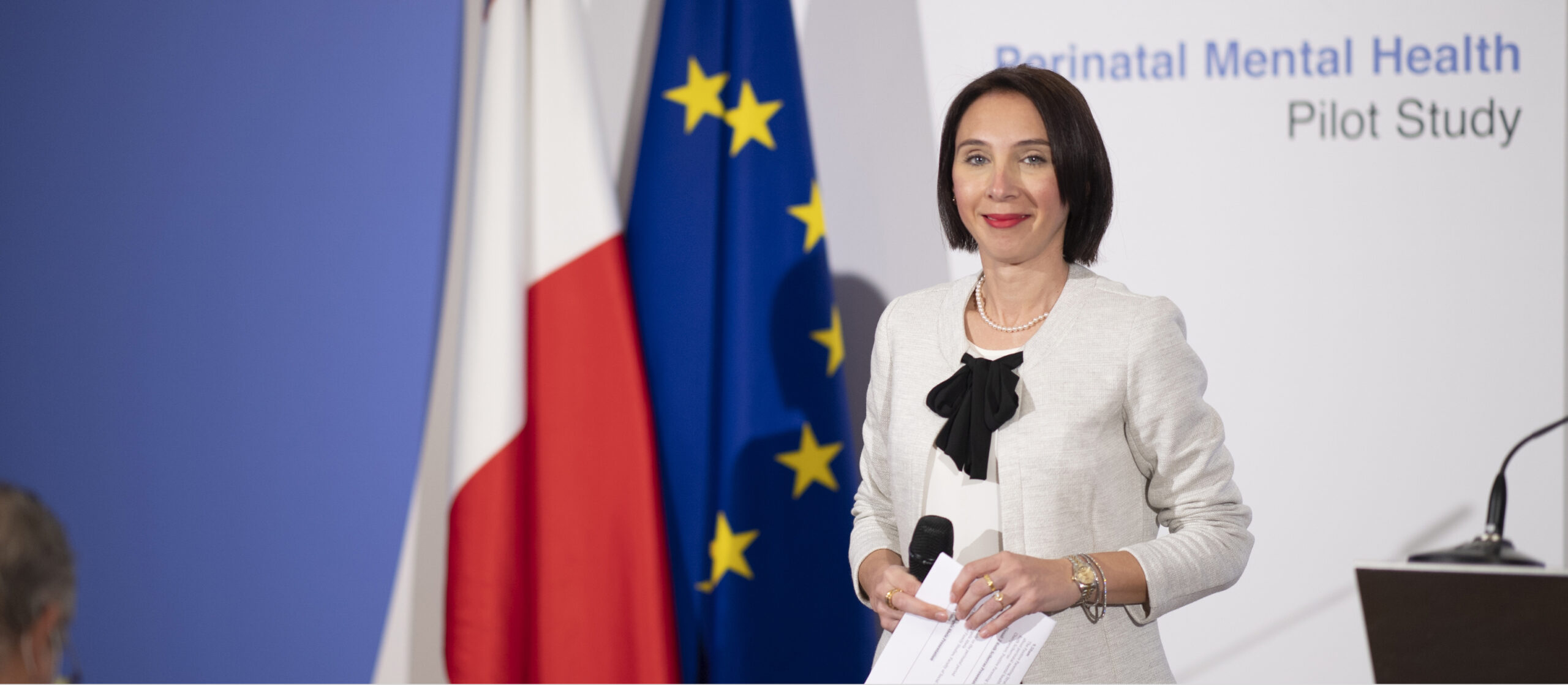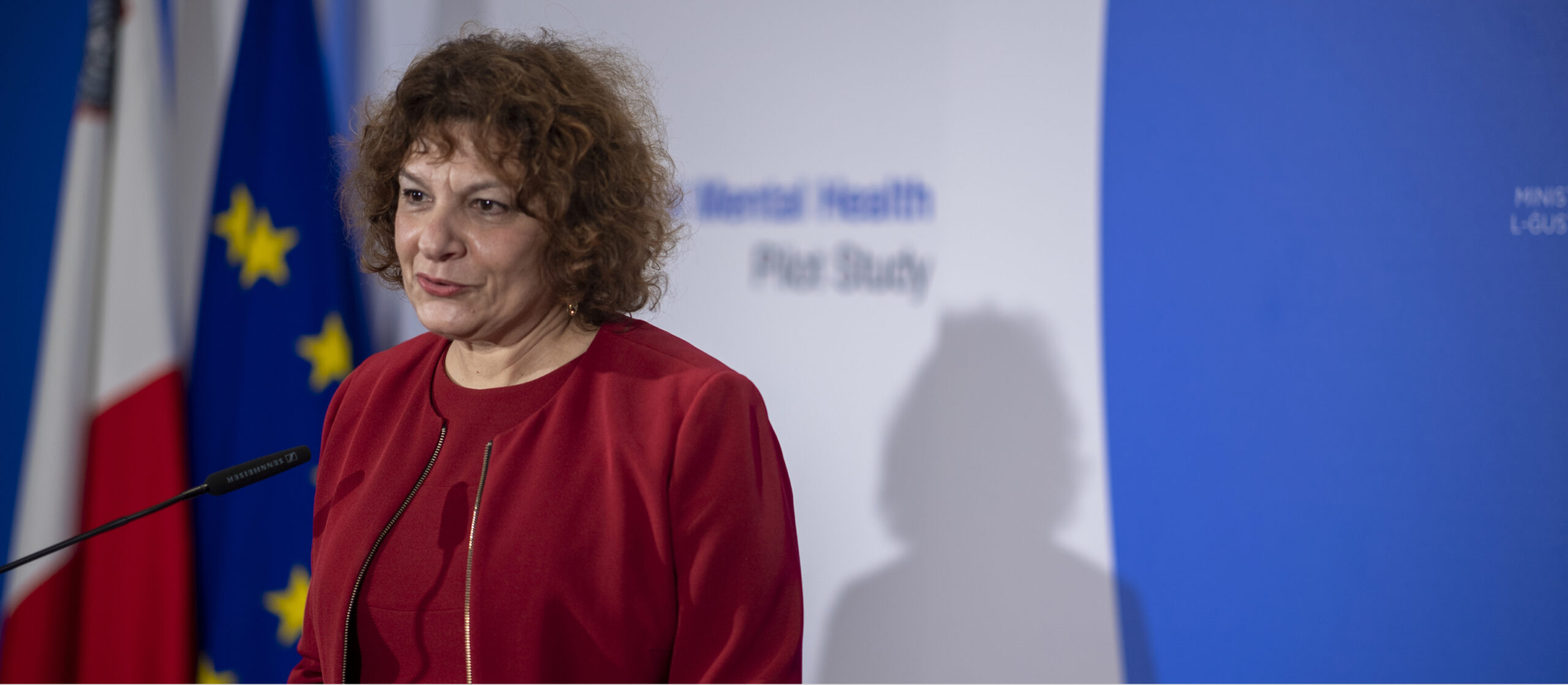The Perinatal Pilot Project
The importance of offering support to both parents when the couple’s relationship is strained during the transition to parenthood is also under investigation. The research forms part and parcel of a perinatal pilot project on the effectiveness of the screening procedures and some of the interventions which will be offered as part of the Positive parenting Strategy. This project is being led by Prof. Angela Abela. Other members in the department who are taking part in the project include Dr Ingrid Grech Lanfranco and Dr. Clarissa Sammut Scerri. These academics are all experts in the area of parenting and are practising psychologists and family therapists
It is being carried out in collaboration with the team of professionals working at the Perinatal Mental Health Service including Dr Ethel Felice, Dr Rachel Buhagiar, Ms Claire Zerafa and Ms Elena Mamo. The Liaison Midwives who visit parents in their own homes following the birth of the baby are also helping us with the screening. It focuses on screening parents in the perinatal period using questionnaires which elicit more information on parental emotional, psychological, and relational wellbeing. Two randomised control trials are being carried out. One focuses on the treatment of mental health difficulties during the perinatal period . Parents with mental health difficulties are randomised into an intervention group and a control group. Those in the intervention group get the intervention which consists of twelve psychotherapy sessions or in the control group where parents would receive treatment as usual.
It is being carried out in collaboration with the team of professionals working working at the Perinatal Mental Health Service including Dr Ethel Felice, Dr Rachel Buhagiar, Ms Claire Zerafa and Ms Elena Mamo. The Liaison Midwives who visit parents in their own homes following the birth of the baby are also helping us with the screening.
It focuses on screening parents in the perinatal period using questionnaires which elicit more information on parental emotional, psychological, and relational wellbeing. Two randomised control trials are being carried out. One focuses on the treatment of mental health difficulties during the perinatal period . Parents with mental health difficulties are randomised into an intervention group and a control group. Those in the intervention group get the intervention which consists of twelve psychotherapy sessions or in the control group where parents would receive treatment as usual.
Another randomised control trial includes providing those parents who are suffering from strained co-parenting relationships during the postnatal period with the Parents as Partners Programme. This is a 16-week evidence-based co-parenting programme aimed at strengthening the co-parenting relationships and parent-child rapport. The aim of this randomised control study is to continue to shed light on the importance of psychological intervention in the perinatal period and to move towards having these psychotherapeutic and co-parenting interventions as part and parcel of the Perinatal Mental Health service.
The Perinatal Pilot Project also includes a Cost-Benefit Analysis, which is being led by Dr. Carl Camilleri, Health Economist. Through this, the long-term economic benefits of the psychotherapeutic interventions mentioned earlier on will be highlighted.
Continuous Professional
Development for Midwives
Continuous professional development is also on offer by the Department of Child and Family Studies for midwives, who work with women in the perinatal stage and are experiencing domestic violence. This study unit is on offer by Dr Clarissa Sammut Scerri. Evidence has identified pregnancy as a time of increased risk for domestic abuse (Leneghan, Gillen & Sinclair, 2012) either as a trigger or as an escalator. Abuse is a significant physical and psychological threat to both the woman and her children and also wreaks havoc in the relationship between family members, particularly in the couple relationship.This study unit was set up as part of the midwifery course, which aims to help health care professionals better understand the complexities that surround domestic violence. It also aims to guide them to know what they can do to help and support their patients and colleagues when concerns around domestic violence issues are raised. The course has already been offered twice in a row and the interest amongst midwives is greatly increasing.
Contact Us
Do you have a question? Contact us now… we can help!

